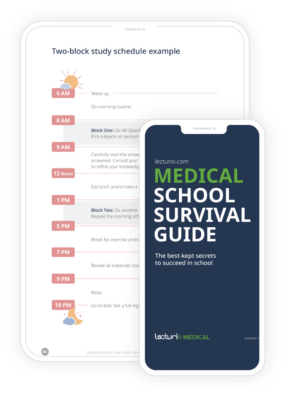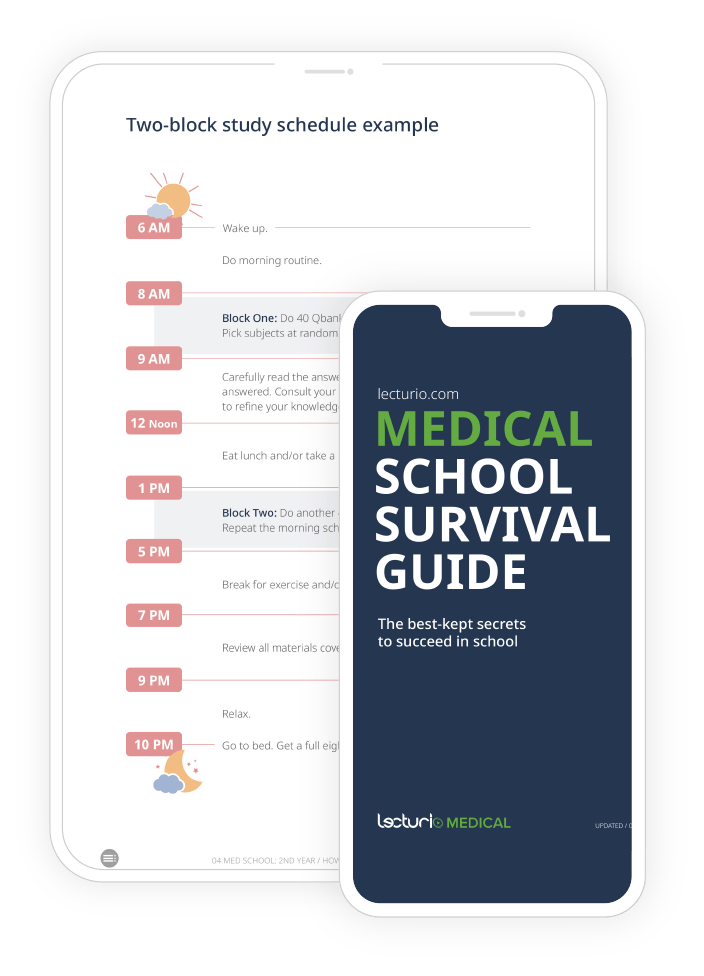Ask Questions…
One of the most time-honored pieces of advice medical students get when starting clinical rotations is to ask questions. Asking questions is the foundation of how you learn – when something seems unfamiliar or you don’t understand a particular clinical decision, try to get to the bottom of the thought process at hand. Doing so allows you to understand not just the facts of medical practice, but also the thought process behind making medical decisions. As a bonus, asking questions shows you are engaged in the team and care about the clinical rotation you’re on.
Related videos
…But Always Do So With Purpose, And at the Appropriate Time
Asking questions to “seem smart” is obvious and is frowned upon by attendings, residents, and your peers. Nobody likes a know-it-all, and asking a question to show off what you know or to “check the box” of seeming engaged comes off as phony. While there’s certainly nothing wrong with asking questions if you’re stumped, asking too many questions, especially questions without clinical relevance, is not likely to win you any points with your team. Try to reserve asking questions for quieter moments when your resident or attending isn’t frustrated, tired, or busy with other tasks. A good rule of thumb is to ask “why” questions of your team; if you could easily use a search engine or textbook to find the answer, it might be best to save the question for your reading later…which brings us to the next piece of advice!
Read More…
Nearly every young doctor is, at some point in their career, instructed to read more. Whether it’s about surgical technique, blood pressure control, or the latest developments in the field of psychology, careful clinical reading is the foundation of success in medical school, residency, and beyond. Reading builds your knowledge base, informs your questions, and allows you to fully engage in the “why” behind your patient’s care. The more you read, the more likely you are to contribute positively to a clinical team.
…But Thoughtfully, Focusing on the Clinical Application
The sheer volume of medical information makes it easy to get bogged down in the details. There are entire textbooks about single diseases! Even reference textbooks can be thousands of pages long. With your limited time as a student, it can seem overwhelming. To manage your reading effectively, use the list of clinical questions you come up with during the day to guide your further reading. You can even look up the answers to these questions “on the fly” if you happen to have downtime between patients or at lunch. Focus on questions that come up for the patients you are taking care of to maximize the impact of your reading. Bringing actionable, timely feedback to the team with the most up-to-date medical information possible is one way top medical students stand out from the crowd.
Take Ownership of Your Patients…
Clinical rotations are the first time in your medical career to step up as a patient’s doctor. This is both an enormous responsibility and a fantastic opportunity to make a difference in a patient’s life and maximize your learning opportunities at the bedside. As a medical student, you have the luxury of taking care of fewer patients than a resident or an attending physician, so you can often spend more time with patients than they can. Use this time wisely, making sure to take ownership of what’s happening during their clinical course. For example, if your patient is going for a diagnostic test you are unfamiliar with, you might ask if you could observe the test to see how it’s done. If your patient needs vitals, labs, or a procedure, volunteering to do these things (with appropriate supervision and the patient’s permission, of course) will show your commitment to their care as well as enhance your clinical skills. Presenting your patient on rounds, talking to consultants about their care, and following up on and interpreting their lab and imaging results as they come in are all ways to take ownership and show you are engaged in your patient’s care.
…But Don’t Overstep Your Boundaries
While clinical clerkships are a chance to perform as a doctor, it’s important to keep in mind that you are still in training. You won’t know how to do everything for your patient just yet. That’s ok, and it’s expected! The key is to know your limitations and when it is time to ask for help. When in doubt, alerting your supervising resident or attending physician is always the right thing to do. Whether it’s a patient who doesn’t look right on pre-rounds in the morning, a vital sign that seems off, a lab result that was canceled or abnormal, or a late-breaking consultant report that could change patient management, always let your supervising resident or attending know if you are not certain about how to proceed. Even if you think you know the answer to a clinical question, it’s a good idea to check in whenever a change to the plan might be required.
This is often the most common area where conflict arises in clinical teams. When a lab result is missed, a change to the plan is made without discussion, or a patient safety incident occurs, medical teams can be quick to point fingers rather than own up to their mistakes. Learners who take ownership of their patients may become upset when changes are made without letting them know, while supervisors who make changes without getting buy-in from their trainees may find their orders are carried out poorly, without understanding, or not at all.
Defining clear roles and relationships near the start of the rotation is one way to clarify what will happen when a disagreement on the clinical team occurs and how these sorts of conflicts will be resolved.
Learn How to Do Everything…
Clinical clerkships are your chance to get experience with everything from suturing wounds to faxing a discharge summary. Take this opportunity to learn from everyone on the medical team — not only your supervising residents and attending physicians. Unit clerks are often experts in who to contact within the hospital for anything and everything and what paperwork needs to be filled out. If you’re looking to practice lab draws, a seasoned nurse or a phlebotomist may be a better choice than waiting until your resident is free. While your attending physician might not know anything about airway clearance, you can bet that a respiratory therapist will.
Learning from everyone in the hospital — not just your immediate physician colleagues — will greatly enhance your clinical experience.
…But Don’t Ignore the Most Important Things
It’s easy to get caught up in all of these learning opportunities, but don’t forget that the primary purpose of your being there in clinical clerkships is to learn how to be a doctor. While there’s some value in learning how to handle your own patient’s FMLA paperwork, you shouldn’t have to fill out all of the paperwork for the entire team’s patients. Similarly, you shouldn’t be the designated person for everyone’s coffee order in the morning. While you should do as much as you can for your patients and help out where you can for other patients, you shouldn’t be stuck doing every menial task for all patients on your team. Make sure that you are still getting to participate in the most critical task of your clerkship — learning how to become an excellent doctor and building clinical skills.
Transitioning from a non-clinical to a clinical setting is a challenge. It takes time and practice to become excellent at it — much like anything in medicine. Following the above advice will go a long way in honing your clinical skills. Before you know it, you’ll be teaching students of your own!







